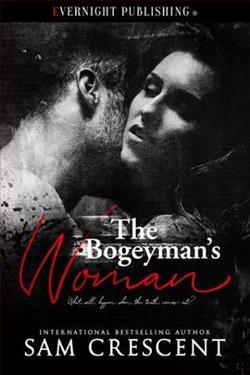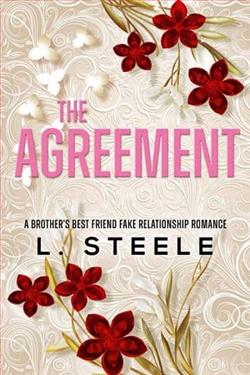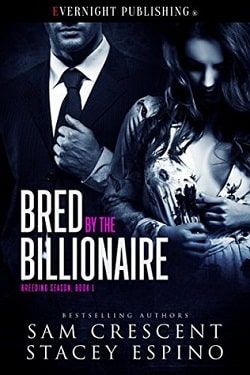Page 23 of Going Home in the Dark
She put a hand on his shoulder. “Thank you for calling them ‘films.’”
“I’m nobody’s snob.”
“Art is art is art regardless of the package it comes in,” said Spencer, no doubt intending to be supportive. “If we’re going to put Ernie in a freezer or somewhere, we better get a move on before they come looking for him.”
They departed in a caravan of three vehicles.
14Stashing Ernie
Rebecca parked boldly in Ernie’s driveway, while Spencer and Bobby discreetly left their vehicles half a block away.
Ernie Hernishen’s house was a two-story Victorian standing as proud as a frigate in full sail, with such a great weight of ornate millwork that, if ithadbeen a ship on the sea, it would have sunk. The garage was detached, but Bobby and Spencer were able to carry their amigo around the back of the residence and through the kitchen door, which Rebecca unlocked with one of the keys on a ring she had found in Ernie’s jacket pocket. The hedges were so tall and the many trees so fully leafed-out that no neighbor could have glimpsed them as they went about their suspicious task.
They carried him through the kitchen and into the hallway. The door to the study stood open. They settled Ernie into one of the armchairs, near his piano, with a collection of guitars hanging on the wall behind him.
Bobby was not easily given to emotion. According to critics, when his writing intended to depict emotional moments, the feelings of the affected characters were finely wrought and convincing. He had thought a lot about why he was able to write affectingly about strong emotion yet almost never succumbed to it himself. He’d first arrived at the conclusion that this wasneither something with which he had been born nor the result of a conscious decision to be at all times stoic. From infancy he had been condemned to the company of his phlegmatic foster parents, Adam and Evelyn Pinchbeck. Long ago, Spencer christened them “Mr. and Mrs. Potato,” because they were almost as silent and hardly more expressive than subterranean tubers. On long reflection, Bobby had decided that, raised in the eerie quiet and torpid atmosphere of the Pinchbeck house, it had been inevitable that he would learn to suppress his most powerful emotions, which was probably why he had become a writer—to express them through the characters in his fiction.
Here in Ernie’s study, however, with his beloved amigo, Bobby the Sham experienced a moment when he sloughed off the unwholesome Pinchbeckian influence. He was overcome by anguish at the sight of Ernie in the armchair, slumped like a sack of cornmeal, his eyes still closed but his mouth sagging open as if he’d been in the company of politicians whose idiocy had infected him; he had been robbed of his dignity; even if alive and in suspended animation, he might have no future; he had neither wife nor children to mourn his decline; his mother was a witch; all in all, his condition was so pitiable that an extraordinary and inadvisable number of semicolons were required to connect the closely associated clauses describing it. Bobby’s legs felt weak, and his chest tightened, and his mouth grew soft with sympathy, and his eyes grew hot with unshed tears—but then he was okay.
Rebecca said, “All right, let’s find a place we can hide him until he comes back.”
“Where, I wonder,” said Spencer.
His words seemed to puzzle Rebecca. “Somewhere in the house. That’s why we’re here.”
“No. I mean where will he come back from? That scares me a little. Doesn’t it concern you?”
Bobby said, “No,” and Rebecca said nothing.
“What if he comes back and he’s not Ernie anymore?” Spencer asked.
“He’ll be Ernie,” Rebecca insisted.
“But what if he’s not?”
“That’s what silver bullets are for,” Bobby said.
“That’s not funny.”
“It wasn’t meant to be,” Bobby said. “Now let’s find a place to stash him and get out of this joint before Britta shows up.”
Every room was furnished in violent contrast to the Victorian architecture, in what Ernie called make-Mother-want-to-scream decor, which was essentially saturation Southwest. Lodgepole pine chairs, twig-work furniture, colorful Navajo weavings hanging on the walls, Navajo rugs, beautiful Pendleton blankets folded over the arms of chairs and sofas for chilly nights, brightly paintedtrasteroswith doors open to display collections of copper and brass ashtrays in the shape of cowboy hats, pueblo pottery, an amazing variety of figurative silver bolo-tie clasps, and much else.
In the end they returned to the living room, where a handsome bay window with beveled-glass panes looked out on the front porch. They had left the hinged window seat open to reveal a two-foot-deep storage space more than large enough to contain a body. Ernie had commissioned draperies made from Beacon blankets with pan-Indian geometric patterns, and Rebecca closed them with a draw cord. Bobby and Spencer had brought several blankets from the bedroom to pad the space.
When they transferred their limp amigo from the study and put him in the window-seat storage, Spencer said, “I hope he’ll be able to breathe in there.”
“He isn’t breathing,” Rebecca reminded him. “No vital signs.”
“But if he comes back and wakes up while we’re not here, he’ll need to breathe.”
“It’s not an airtight space,” Bobby said. “Anyhow, he can just lift the lid and get out.”
Spencer grimaced. He was very good at grimacing. He practiced his grimace assiduously. It was one of very few expressions that, during opening night at an art gallery showing, impressed wealthy collectors and convinced them that he was a creative power with which to be reckoned. “Driving here from Chicago, I never thought I’d be hustling poor Ernie around, trying to keep him out of the hands of a mortician.”
“It’s pretty much exactly the kind of thing I expected,” Bobby disagreed. “Don’t you think it reminds you of the good old days? I feel like I’m fourteen, though I don’t know why.”
“What next?” Spencer asked.















